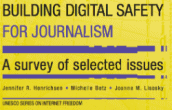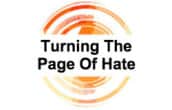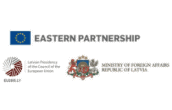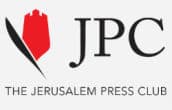|
|
News and Debates
|
| The headlines this month have all been focused on the continuing tragedy of migrant deaths in the Mediterranean. This is a story that resonates around the world and will be the focus of the EJN’s next global survey on the ethical challenges facing media reporting on people crossing borders and continents to escape poverty, war or humanitarian calamity.
Continue …
|
|
|
|
| World press freedom day should not only be about keeping journalists safe and stopping unscrupulous crooks and trigger-happy politicians from targeting media, but it should be about helping journalism to recover its ethical base. (via Mediacentar) |
|
| Public editor of the New York Times shares with graduate students what she learned over the past three decades in the news industry. (via The New York Times) |
|
| One reporter’s experience of being confined in squalid, overcrowded cells with inedible food and rights ignored while waiting for a criminal charge that never came (via The Guardian) |
/contents/my-49-hours-in-a-baltimore-cell-for-being-a-reporterhttp://www.theguardian.com/us-news/2015/may/02/my-49-hours-in-a-baltimore-cell-for-being-a-reporter |
| False information on Twitter overpowers efforts to correct it by a ratio of about 3 to 1, according to a study published today by the American Press Institute. Research conducted by Andrew Guess of Columbia University used algorithmic technology to collect a sample of nearly 100,000 tweets relating to the Ebola scare or Obamacare. In the Ebola case, the study found that only 27 percent of tweets about Ebola’s spread in the U.S. were attempts to debunk that misinformation. (via The American Press Institute) |
|
Reports
|
UNESCO
Journalists fearing digital threats can now find a path between feeling either apathetic or immobilised, thanks to a new study by UNESCO titled Building digital safety for journalism: a survey of selected issues. The new report analyses and explains 12 key digital threats to journalism, ranging from hacking of journalistic communications, through to Denial-of-Service attacks on media websites.
It takes an inclusive approach that is relevant to any actor who is in danger of being targeted for doing journalism. Indeed, many points made are also of direct relevance to human rights defenders in general and to people who are sources for journalists.
Continue …
|
|

|
|
Events & Workshops
|
| Democracy needs truth-telling.
This is not possible when crucial (and sometimes illegal) government policies remain hidden from the public. Whistleblowing is essential for bringing such policies into the light: exposing key information related to human rights violations, corporate malfeasance, the environment, civil liberties and war.
We must stand up for a free press, individual privacy, governmental and corporate transparency, due process and rule of law as we seek to reveal official information that the public has a right to know.
The London leg of the international Stand Up for Truth whistleblowers speaking tour is being co-organised by the Media Reform Coalition and the Campaign for Press & Broadcasting Freedom, supported by the NUJ, Whistleblowing International Network and Public Concern at Work.
Monday, 1 June 2015 from 18:30 to 21:00 at Birkbeck (University of London) Main building, Room B35 (entrance on Torrington Square) London WC1E 7HX
Speakers: Daniel Ellsberg, Thomas Drake, Jesselyn Radack, Coleen Rowley, Norman Solomon & Justin Schlosberg. |
|
Dar es Salaam
Tanzania is organizing awareness training for media from 12th– 13th May 2015. The event is organized by International Association of Women in Radio and Television (IAWRT) Tanzania Chapter (AWRTT) in collaboration with the Ethical Journalists Network (EJN) with support from the Norwegian Ministry of Foreign Affairs.
The main objective of the Turning the Page of Hate: Challenges for Ethical Journalism in times of Conflict workshop, which is carried out in the context of the Africa-wide campaign Turning the Page of Hate and the upcoming elections, is to help the journalism community push back against editorial practice that can reinforce stereotypes, incite intense hatred and violence, and ignore the reality of violence against women at work and home.
Continue …
|
|

|
|
Riga
The 1st Eastern Partnership Media Conference will address the role of media in the Eastem Partnership (Eap) region. The conference will look at the current challenges in the media field in the Eap countries, and consider appropriate responses to them.
Continue …
|
|

|
|
Jerusalem
EJN panel on 25 May at 14:00
Are there Limits to the Freedom of the Press?
Speakers: Lord Harry Woolf, former Lord Chief Justice of England and Wales
Yossi Klein Halevy, author, senior fellow at the Shalom Hartman Institute, co-director of the Institute’s Muslim Leadership Initiative Imam
Chair:
Aidan White, Director of EJN, Ethics in Journalism Network
Continue …
|
|

|
|
|
|
|
|